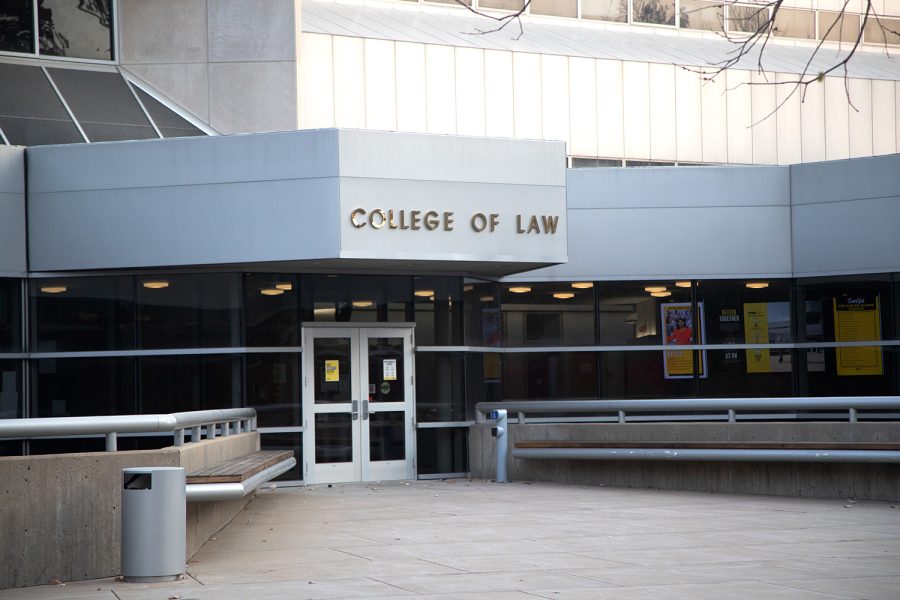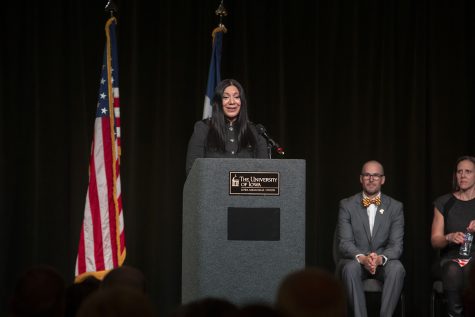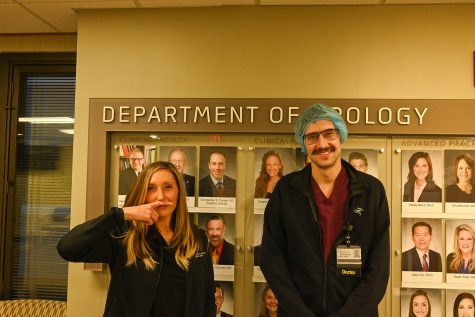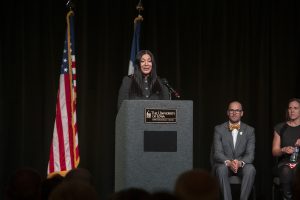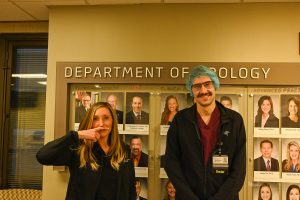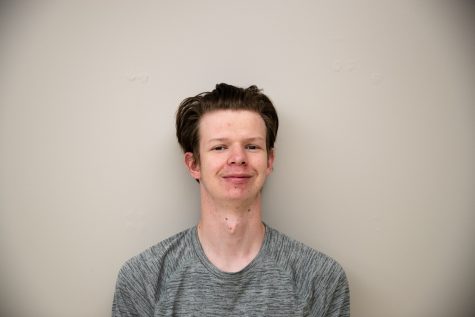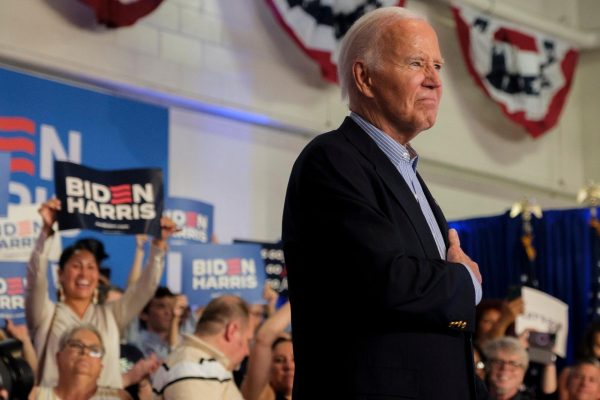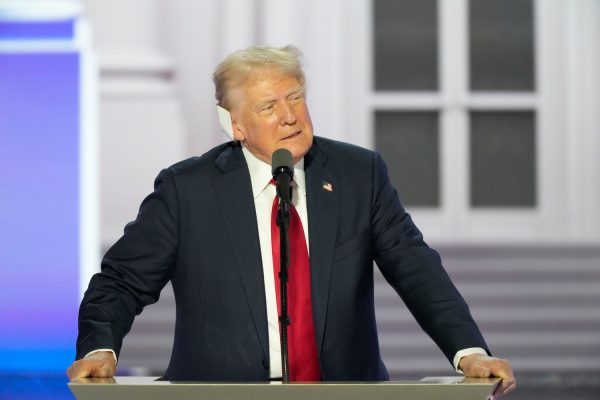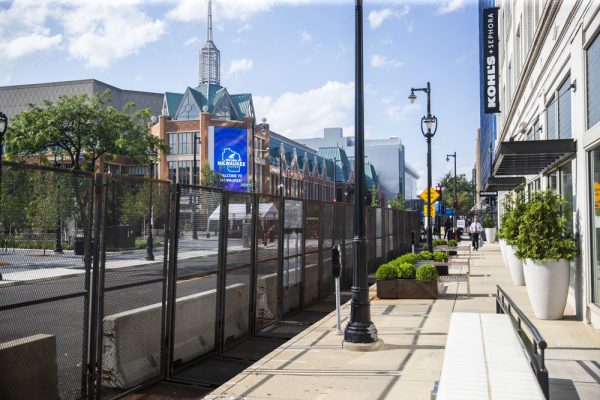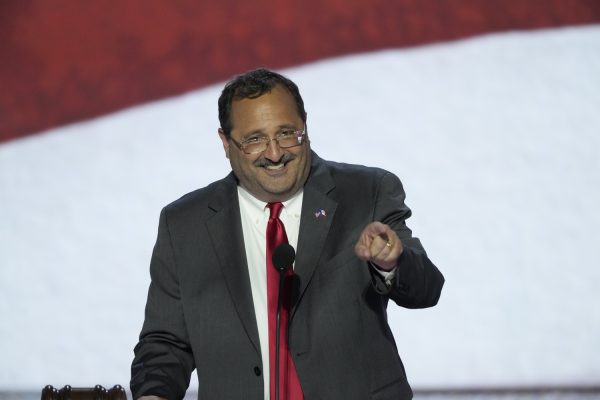UI College of Law dean responds to backlash from faculty self-evaluation forms
A national civil liberties group called the Foundation for Individual Rights in Education contested a faculty self-evaluation question at the University of Iowa College of Law, asking professors to define their success in promoting diversity, equity, and inclusion.
The University of Iowa of Law Building is seen on November 10 2021.
November 11, 2021
The University of Iowa College of Law declined to respond to two letters from a national nonprofit civil liberties group objecting to a new diversity question in the law school’s faculty self-evaluation forms.
The question on the survey asked faculty members to, “identify any contributions you have made to improving our law school community in the areas of diversity, equity and inclusion. Please do so.”
The Iowa Law Anti-Racism Action Committee in the UI College of Law wrote a report of recommendations after Black Lives Matter protests in 2020 on Aug. 21, 2020.
In response, the Foundation for Individual Rights in Education — a national nonprofit focusing on free speech issues on campus — wrote a letter to the college saying the proposal to ask a diversity question on faculty self-evaluation forms on Oct. 12, 2020 is politically biased.
Kevin Washburn, dean of the University of Iowa College of Law, then declined to respond to the letter, prompting the Foundation for Individual Rights to publicize its complaint.
Washburn said last fall, having held its most diverse class in history, the law school decided to focus on serving a more diverse student population than ever before, and that the new question was part of that initiative.
“We’re about serving the students well,” he said. “When you bring in such a diverse class it just makes sense to ask … faculty to think about how they’re serving those students.”
The foundation sent its 2021 letter after Washburn had already sent out the self-evaluations for this year, he said. He said it is possible the question might change next year or disappear because he changes the questions every year.
“I think that we had an important moment in history after the killing of George Floyd, and I think that question was partially prompted by that unique moment in history that we were in at the time,” he said.
Washburn said the question does not exclusively refer to racial diversity but also to viewpoint diversity.
“We’re an unusual law school in that we have faculty across the political spectrum,” he said. “I think it’s good that we have faculty members who are democrats and who are republican and who are across the ideological spectrum because it encourages better debate.”
The question was first added to the forms in fall 2020 at the request of the Iowa Law Anti-Racism Action Committee and was added again for the fall 2021 forms.
Sabrina Conza, program analyst for the Foundation for Individual Rights in Education, wrote in an email to The Daily Iowan that the foundation’s main concern is the inclusion of the survey’s question.
Conza wrote that the question included ideologically loaded terms that are not narrowly defined in a viewpoint-neutral manner.
Washburn said the question is not mandatory, but Conza wrote in a post on the foundation’s website on Nov. 3 that the words “please do so,” in the question distinguish it from all other questions on the form, none of which include those words, and make it appear mandatory.
The foundation sent another letter to the UI College of Law on Oct. 11, proposing a rewrite of the question, which they think does not carry implications of viewpoint discrimination.
In their 2021 letter, FIRE suggested what they consider an unbiased way of phrasing the diversity question that says, “If interested, please use this space to discuss any contributions you have made to the law school community in the areas of diversity and inclusion. Responses will not be evaluated on the basis of viewpoint, and there is no penalty for declining to respond.”
Washburn said he could not discern any significant difference between his version and the question that the foundation proposed.
“Diversity is really what a university is all about,” he said. “We want to create an environment where people can test all kinds of ideas, good ideas, bad ideas, crazy ideas, and we can see which ones succeed and which ones fail.”



